
Published 13-11-2012, 06:02
 Now that the world’s most important elections are over, the time has come to look ahead. During the campaign, the holder of the office of US President was frequently described as the leader of the "free world” or the most powerful person on Earth. What’s more, it was repeatedly claimed that he must exercise "global leadership”. Given this self-appointed role, it follows that Washington must take into account the interests of its "global constituency”. This would imply conceding that its global constituents have the right to express their views and, not least, that those views deserve to be listened to.
Now that the world’s most important elections are over, the time has come to look ahead. During the campaign, the holder of the office of US President was frequently described as the leader of the "free world” or the most powerful person on Earth. What’s more, it was repeatedly claimed that he must exercise "global leadership”. Given this self-appointed role, it follows that Washington must take into account the interests of its "global constituency”. This would imply conceding that its global constituents have the right to express their views and, not least, that those views deserve to be listened to.First, let’s consider the economy. While not out of the woods yet (not least owing to the looming "fiscal cliff” early next year), the US economy is in relatively good shape, which, unfortunately, cannot be said about its largest trading partner, the European Union. Meanwhile, China and the other BRIC countries are experiencing slower economic growth. So in order to meet its "global responsibilities” on the economic front, Washington needs to ensure that the US’s economic revival is placed on a sustainable footing. For this, a significant measure of domestic consensus will be required. Will the US political class take note of this in the interest of the world at large?
At the same time, there cannot be a regeneration of the world economy without a significant improvement in global political stability. And on this front the US continues to face a steep uphill struggle. With its priorities distorted by neocon ideology and the exigencies of short-term "fire-fighting”, Washington remains pre-occupied with the Middle East, Iran and Afghanistan. But surely the world’s most perilous fault-lines are those between the three superpowers – the US, China and Russia (yes, Russia remains a superpower not least thanks to its geographical location and nuclear defense prowess)? Here, instead of seeking consensus and constructive engagement, Washington seems bent on dealing with the "autocrats” from a position of strength that rides roughshod over the latter’s legitimate security interests. Among others, Dmitry Trenin, Director of the Moscow Carnegie Center, has pointed out this is a serious strategic error.
To achieve a genuine paradigm change and hence reap vast economic and security benefits, the US would have to do the following:
1). Acknowledge that its plans for missile defense are driven not by concerns about Iran and North Korea but by geopolitical rivalry with China and Russia.
2). Encourage a genuinely democratic debate of these vital issues not only at home but, even more important, among those people whose security is directly concerned – that is, in Europe and the Asia Pacific countries that are US allies.
3). Take the lead in forging a system where all three superpowers, along with other parties, jointly manage the development of anti-missile defenses on the basis of equality and due respect for the other parties’ interests.
Questions:
•What are the chances of such a paradigm change being achieved?
•Given that the US styles itself as global democracy leader, why does it appear to have been unable to date to pursue such a manifestly democratic and responsible path?
•What advice would you give the US president in his role as "global leader”?
The topic for the Discussion Panel is provided by Vlad Sobell, Expert Discussion Panel Editor (New York University, Prague)
Expert Panel Contributions
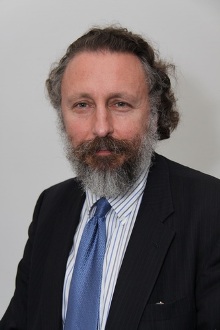 James George Jatras
James George JatrasFormer analyst, US Senate Republican leadership
Washington
For the described paradigm shift to occur, the United States (or more properly, the Obama Administration) would indeed have to learn that "its global constituents” – starting with the other Permanent Members of the UN Security Council – "have the right to express their views and, not least, that those views deserve to be listened to.”
To see whether such a shift is possible with respect to missile defense let’s first apply it to the most acute of today’s "short-term fire-fighting exigencies”: the civil war in Syria, where the Obama Administration, in cahoots with Saudi Arabia, Turkey, and Qatar, has acted less like a fire-fighter than a firebug. Repeatedly, Russia and China have suggested that a Syrian settlement must result from negotiation and compromise, with Foreign Minister Lavrov even meeting recently with a key opposition figure. Meanwhile, Secretary Clinton is still trying to breathe new life into a faltering winner-take-all policy predicated on Bashar al-Assad’s ouster by reshuffling the leadership of the various Sunni jihadi terror groups that dominate the Syrian rebels.
If the Obama Administration is prepared to listen to the views of Moscow, Beijing, and other potential partners on missile defense or anything else, "listening” can’t be just a pro forma exercise that needs to be endured in the course of battering the other side into acquiescing to a predetermined outcome, as has characterized Western policy on the Balkans, Afghanistan, Iraq, Libya, and now Syria. Quite to the contrary, the process of reaching accord among the Permanent Members (if properly functioning, today’s approximation of the generally successful 19th century Concert of Powers) in some circumstances may be more important than the actual outcome. Depending on the issue, even a settlement that is less than optimal in the view of one or another of the powers (or of the subject, for example Syria’s various communities) may be objectively more valuable in the international context because it results from a genuine compromise.
This is a standard that clearly should apply with respect to missile defense. As a Washington insider who enthusiastically supported the concept when proposed by Ronald Reagan in the context of the US-Soviet nuclear standoff, I am somewhat mystified by dogged US insistence, by Republicans and Democrats alike since the 1980s, on the need for a defense against Iranian nuclear-tipped missiles that the United States insists Tehran never will be allowed to possess in any case. Such insistence is not the result of European demands to be defended against this nonexistent threat. It has all the earmarks of a policy driven by Congressional, Pentagon, and contractor pork considerations and bureaucratic inertia, mixed with a self-referential "logic” that confuses capabilities with strategic imperatives ("we can build it, so we should”). Or more plausibly, this really is aimed against Russia, either directly to degrade Moscow’s strategic capability or indirectly as a subliminal beachhead of US and NATO strategic dominance over Russia.
But let’s assume there really is a valid strategic need for missile defense from an American/NATO perspective. Let’s further assume that Russia and China – who oddly seem to be even less terrified of "rogue state” missile attack than the complacent Europeans – are willing to accept the same premise regarding their own defense needs. Would it be possible for Washington/Brussels, Moscow, Beijing, perhaps others (New Delhi comes readily to mind) to start with a joint commission of experts to identify genuine missile threats from specified third parties and then, from a purely technical and borderless perspective, outline what a seamless defense of all the participants would look like – and only after that wrestle with the inevitable (and heretofore fatal) issues of system control? If there really is good will on all sides, the answer should be "Yes”, with the primary deliverable a valuable confidence-building exercise and the missile defense itself a secondary (and hopefully not too costly) byproduct.
But if that goodwill does exist, it’s imperative we start with Syria. While the Obama Administration may have reduced slightly the strident tone of its pronouncements, there’s as yet no indication of a change in substance or willingness to accept genuine negotiations without preconditions or a priori demands, with Iran part of the solution no less than Saudi Arabia and Turkey. Also, if we keep in mind the boost winning an election gives to what already are inflated and arrogant personalities – plus the fact that militancy against any Russian position is one of the few policy areas where Obama will be supported and even pressed forward by most Congressional Republicans – it’s hard to be optimistic.
 Robert Bridge
Robert BridgePolitical commentator, RT
Four years ago, when Barack Obama was elected to the White House amid a storm of international enthusiasm, I would have been optimistic over the prospect of Washington acting on behalf of "global democracy.” The last four years, however, have severely dashed those hopes. The chances that the Obama administration would willingly consent to some sort of a "democratic debate” among Beijing, Moscow and Washington concerning national security issues - foremost missile defense in Europe - would require nothing less than a monumental political shakeup in the United States. Indeed, it would require the coming to power of a completely new political party that is not guided by the hidden hand of US foreign policy (I will not venture here to say exactly what body that hidden hand is connected to, but suffice it to mention various secretive organizations, the Bilderberg Group, for example, that are meeting behind closed doors).
It seems to me that the neoconservatives, although officially out of the White House, are still exerting tremendous influence on the Obama administration. This was clearly noticeable when Obama failed in his pledge to shutter Guantanamo Bay detention facility. Although the Bush administration as a group was reviled by the majority of Americans, former Vice President Dick Cheney nevertheless launched a nationwide media campaign to denounce Obama's plans to close Gitmo. In what would be a historic first - that is a former vice president defeating an initiative of a newly elected leader, who incidentally enjoyed House and Senate majorities - Gitmo remains open for business today.
Meanwhile, Obama has intensified drone attack missions over Afghanistan and Pakistan (and even in the American heartland, for that matter), has signalled his approval to build military bases in formerly occupied Middle East countries (Iraq and Afghanistan), while showing total inflexibility with Moscow over its plans to drop a missile defense shield in former Warsaw Pact real estate.
What we are witnessing in the realm of geopolitics is simply Phase II (entering the Third) of the Neoconservatives ultimate plans for establishing a New World Order. This agenda does not rely on the participation, cooperation or deliberation of any other countries. As far as the European Union goes, Washington is quite happy to use it just as it would its own landmass. Despite the fact that the United States used parts of Europe for hosting "black hole" sites where alleged terrorists were tortured and/or shipped courtesy of "extraordinary rendition" flights to Guantanamo Bay for further medieval delights, Europe remains a silent, compliant and submissive "partner.” It could not be any other way. The United States, which has become an out-of-control military industrial wasteland, which ignores the democratic rights of its own people, will never sincerely consider the concerns of other nations unless it works in its own favor.
Until the American people bring to power an alternative political program that is not owned lock, stock and barrel by the bloodthirsty Neocons and the corporate sector, any idea of a global democratic system is utterly impossible. Therefore, no country should be deceived by Barack Obama. His agenda is not his own.
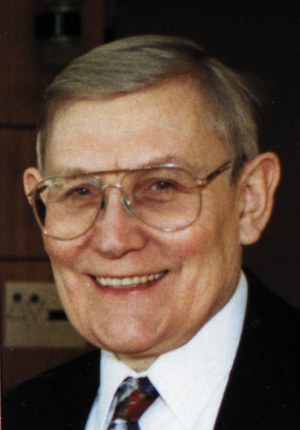 Dmitry Mikheyev
Dmitry Mikheyev Former Senior Fellow at the Hudson Institute, teaches "Leadership in the 21st century” at various business schools in Moscow
The chances of such a paradigm change actually materializing are very slim, despite Barack Obama’s unique credentials. During the previous presidential campaign Obama styled himself as a consensus-seeker who could bridge the chasm between the conservative and liberal Americas and stop the current deeply embedded ideological and cultural conflict. He has failed miserably because a change in America’s overall stance on the global stage – that is, switching from hegemony to team-playing and genuine leadership – requires an entirely different mindset. Unfortunately, despite being of mixed race and despite being a very intelligent and highly educated person, Obama subscribes to the concept of leadership that has run uninterrupted throughout the entire history of the American presidency. I call it authoritarian leadership.
Two quotations underscore the "genetic” and religious roots of American sense of superiority and authoritarian leadership:
Samuel P. Huntingdon: "American identity is the outcome of a unique Anglo-Protestant culture, which includes the English language, Christianity, the rule of law, human rights based around a strong concept of the individual, and a strong work ethic – such elements often being called the 'American Creed’.” (Who are We? The Challenges to the America's National Identity, Simon & Schuster, 2005).
Pat Robertson: "There will never be world peace until God's house and God's people are given their rightful place of leadership at the top of the world. How can there be peace when drunkards, communists, atheists, New Age worshipers of Satan, secular humanists, oppressive dictators, greedy moneychangers, evolutionary assassins, adulterers, and homosexuals are on top?” (The New World Order, 1991).
Authoritarian leadership stems from an antiquated Hobbesian worldview of universal hostility and strife. As Richard Slotkin wrote, American culture "was born out of the confron¬tation between cultures that embodied two distinctly different phases of mythological evolution, two conflicting modes of perception, two antago¬nistic visions of the nature and destiny of man and the natural wilderness.” (Regeneration through violence, University of Oklahoma Press, 1973/2000). This antagonistic worldview suggests a vulgar Social Darwinism with its cut-throat competition and strictly hierarchical organization of both domestic and global communities.
By moralizing, bullying, coercing and killing, authoritarian leadership breeds animosity, envy, war and destruction.
True leadership is based on diametrically opposite assumptions about the nature of the world such as mutual respect, cooperation and reciprocity. True leadership is marked by vision, inspiration and empathy. A true leader is someone who inspires others to realize their potential and organize themselves. He/she creates an atmosphere of mutual understanding and cooperation between members of the community. A true leader is admired, not feared, because he/she is not the strongest but the wisest who respects others and their opinion. Most important, a true leader is concerned with the collective’s wellbeing, not just with his own. He/she does not exploit the divergent interests and aspirations of different people but rather does his/her best to reconcile them through compromise and cooperation.
Obama is anything but a WASP and in all likelihood does not share the belief of all American presidents before him in the superiority of the Anglo-Saxon race and the Protestant branch of Christianity. But he has been co-opted by the military-industrial-financial oligarchy and, hence, can change very little.
So if I were to give the US president some advice, I would urge him to try to persuade his fellow Americans to forfeit their claim of exclusivity and divine right to leadership, abandon their authoritarian leadership style and learn to live in a Global Village. Because if any country is in need of friendly lectures in humanism and democracy, it is today’s America.
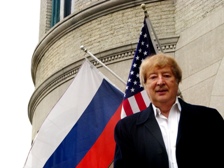 Edward Lozansky
Edward Lozansky President, American University in Moscow,
Professor of World Politics, Moscow State University
The view that the U.S. economy is "in relatively good shape" appears to me overly optimistic. The "fiscal cliff" looming ahead is especially menacing, given that there is no sign of the Republicans going along with the Democrats’ plans for budget cuts and tax rises. Thus the top priority for Obama's second term will be meeting the economic challenges ahead.
Foreign policy will be to a large extent delegated to the new Secretary of State; and if it is Senator John Kerry, who in my view is the preferred choice, we might see some progress in US-Russia relations. If, to please the hardliners, Obama chooses the U.S. representative at the UN, Susan Rice, we will see either more or less the same stalemate as was evident under the stewardship of Condoleezza Rice or Hillary Clinton or, judging from some of Susan’s rhetoric in the UN, perhaps even worse.
My feeling is that Kerry understands the limits of American might somewhat better than the others. As a former Vietnam veteran, he knows only too well that even in the golden times of American ascendancy, the role of world policeman was too overwhelming even for the world's indisputably greatest economic and military power.
With China on the rise and America in decline, Washington should at last learn the virtue of humility. It should acknowledge certain obvious facts, at least to itself, and talk less about its global responsibilities (which cannot be realized anyway) and more about cooperation with other nations.
The embarrassing failures in Afghanistan and Iraq and of color revolutions in post-Soviet space ought to induce some measure of sobriety in at least some of the US elite responsible for the design and implementation of foreign policy.
Indeed, does anyone in their right mind consider the so-called "Arab Spring" – which resulted in the rise of the Muslim Brotherhood and Al-Qaeda in the Middle East – to have been a great foreign policy achievement of the United States or NATO?
What kind of democracy promotion can one talk about if such "beacons of democracy" as Saudi Arabia and Qatar are among the most active US allies in promoting such values in that region? Has not a huge price for these failures been paid already with thousands of American lives and trillions of dollars in wasted investment?
The time has clearly come to fundamentally rethink America's foreign policy and delegate some of the responsibilities for the new world order to the European Union, Russia and China – and later perhaps to India and Brazil – as the most powerful and responsible world players.
The European Union must, of course, sort out its current economic mess. Also, "Old Europe” should inform the former Soviet satellites that are now a part of the EU that Russia is not the USSR; that it is high time for them to finally overcome their 20th century phobias and face the new geopolitical realities.
The first and most important issue on the table regarding Obama's policy towards Russia is obviously Ballistic Missile Defense (BMD). I think the US president should tell his advisors to refresh their memory of the November 2010 NATO summit in Lisbon, where the decision was made to work with Russia on developing a joint BMD. Although officials on both sides continue to make speeches on the subject, no progress has been made in this area - it's all just talk.
Obama should also honor his now famous whisper in Medvedev's ear that he will be more " flexible” on BMD after the elections. This pledge was not a betrayal of US security interests, as some keep insisting. On the contrary, it is a step in the right direction. If Obama means to deliver on the Lisbon agreements, this kind of joint BMD effort will be a win-win situation for everyone – with the exception of those, of course, who want the future BMD to be aimed specifically at Russia and China and who still think in terms of securing America's supreme position worldwide without any regard for other countries' legitimate concerns.
This is not to say that Russia's policy in this sphere is ideal. On the contrary, it too has its problems. During negotiations the Russian side often behaves as stubbornly as the American one, or worse. However, one way or another, we need some real progress in this area. If this is achieved, all other remaining foreign policy issues could be much easier to settle.
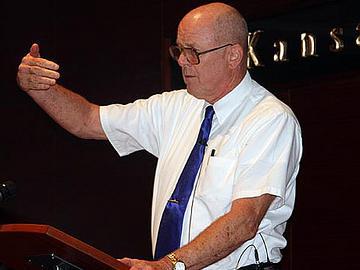 Dale Herspring
Dale HerspringUniversity Distinguished Professor of Political Science
Kansas State University
As usual, Vlad has raised some interesting and critical questions. First, I think we will have to wait and see how Obama moves in the foreign policy area. It is not his strength. He is more interested in fixing matters at home than working on foreign policy. I think Secretary of State Hillary Clinton will play a key in this area.
Now to Vlad's other questions. I may be wrong, but I see little or no chance of the US military admitting that missile defense is aimed at Russia. I admit that Russia is an interesting add-on, but unless Obama is going to make another move like he did with Medvedev, I doubt that it will happen. The US has sought missile defense for so many years that I see little chance of a change in this area, unless Obama decides to go out on a limb.
As the US military and political leadership sees it, Russia is not a serious threat at present. China is something else and I have no doubt there are plans to use such systems against China should the need arise.
I am not sure what is meant by "a genuinely democratic debate on the issue." Everyone is free to debate the issue as we have done here. I don't see the US putting together a conference on missile defense. Besides, if it did, I doubt that it would have any impact on US policy.
Vlad's third point (i.e. forging a system where all three superpowers agree on an anti-missile agreement) is more interesting. I can imagine arms control talks, but I cannot imagine the US giving up its superiority in this area, unless Obama goes along with such an idea.
In short, everything depends on Obama. He is unpredictable in the foreign policy area, so anything is possible.
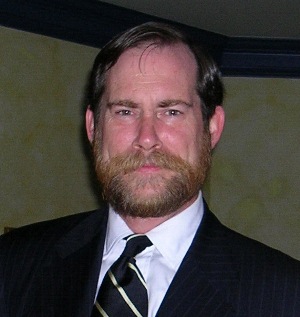 Patrick Armstrong
Patrick ArmstrongPatrick Armstrong Analysis,
Ottawa, Canada
William of Ockham, if he were here, would probably tell us that the next four years in the USA will resemble the last four. Sluggish economy, growing deficit, high unemployment, drone strikes offstage, the occasional attack on a US facility, armed interventions (is Mali next?). Maybe he would be wrong. But he has been a reliable guide for seven centuries.
As for Russian-US relations, at least the US President doesn’t say that Russia is the "number one geopolitical foe” but he still says "America remains the one indispensable nation. And the world needs a strong America”.
What of Obama’s whispered "flexibility” on missile defence? Well, it might amount to some genuine considerations and satisfaction of Russia’s concerns, but it might just be mere words. After all, what was preventing Obama from doing something in this direction in the last four years? We shall see, but I don’t expect anything much. And, as I have argued elsewhere, the famous "reset” has not reset Washington’s conviction that Moscow will never be a reliable sled dog in the team.
But the reality is that Washington’s foreign concerns will be driven, as they have been since 2001 (and earlier) by some unexpected development in the Middle East/jihadist nexus and not by anything that originates from Moscow.



_jpg/250px-ElbeDay1945_(NARA_ww2-121).jpg)






